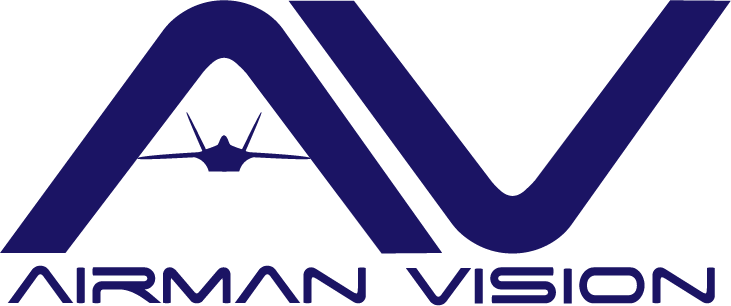2A9X1 - Bomber Special Integrated Communication Systems/ Navigation Systems
2A9X1 - Bomber/Special Integrated Communication/Navigation/Mission Systems
Bomber Special Integrated Communication Systems/ Navigation Systems Information
ASVAB REQUIREMENT:
Electrical 70
STRENGTH REQUIREMENT:
70 lbs
AVERAGE INDOOR/OUTDOOR WORK CONDITIONS:
20% Indoor / 80% Outdoor
AVERAGE HOURS WORKED:
50-60
POSSIBILITY OF WORKING WEEKENDS:
Yes
DEPLOYMENT TEMPO/RATE (LOW, MEDIUM, HIGH)
High
TECHNICAL TRAINING LENGTH:
117 Classroom Days
TECHNICAL SCHOOL LOCATION:
Sheppard AFB TX
KNOWN DUTY STATIONS AVAILABLE TO NEW AIRMEN:
(we’re working on getting this information)
COMMUNITY COLLEGE OF THE AIR FORCE DEGREE:
Avionics Systems Technology
Airmen describing Bomber Special Integrated Communication Systems/ Navigation Systems
The Bomber/Special Integrated Communication/Navigation/Mission Systems (B/ICNS) career field in the Air Force is responsible for the maintenance and operation of the communication, navigation, and mission systems on bomber aircrafts such as the B-1, B-2 and B-52.
A typical day for a B/ICNS member may involve:
Maintaining and troubleshooting the communication, navigation, and mission systems on bomber aircrafts
Performing pre-flight and post-flight inspections on aircraft systems
Conducting software and hardware upgrades on aircraft systems
Collaborating with other maintenance personnel to ensure that aircraft are ready for flight operations
Participating in training, drills, and exercises to maintain and improve skills in aircraft systems maintenance and operation
Providing guidance and training to other Air Force personnel on B/ICNS best practices and procedures
Participating in classified and unclassified meetings with other B/ICNS team members and other agencies
Participating in military operations, including aircraft maintenance and operation
It's important to note that depending on the specific role, a typical day may also include different responsibilities. B/ICNS specialists are responsible for the complex communication, navigation and mission systems that are critical to the bomber aircrafts, and are responsible for ensuring that the aircrafts are fully operational, safe and ready for missions.
Bomber Special Integrated Communication Systems / Navigation Systems airman are also known as Communication Navigation. Comm Nav airmen are maintainers who work on all the communication systems like radios, and any other system that deals with communications inside and out of the aircraft. They also work with navigation systems such as radar, and other systems that like GPS to help the crew navigate the aircraft. Communication Navigators make sure that all systems are operating properly for the air crew to use on missions.
My job is bomber special integrated communication system/navigation system. also known as comm nav. I'm a maintainer, I work on all the communication systems like radios, and any other system that deals with communications inside and out of the aircraft. I also work with navigation systems such as radar, and other systems that like GPS to help the crew navigate the aircraft. I make sure that all systems are operating properly for the air crew to use on missions. A typical day would be that I come in to work and get turnover from the previous shift. So our shift is able to know what the previous shift had done, to help make things run more efficiently. that way we don't repeat the same troubleshooting steps they've already done, or swap out the same parts. After we receive turnover we head to roll call where they take accountability for all the shops, they also tell us the priorities for that day. Priorities for the day would be like "we're launching aircraft xxx, and need launch support for this aircraft" or "work this issue on this aircraft". After we receive our priorities for the day we then walk over to CTK, which is where we check out tools. We check out tools and load them on to the truck, and then we ride on the truck on the flight line. If we're launching an aircraft we would stay in the truck, for the possibility that the air crew has an issue with one of our systems and needs support. If the air crew has an issue the crew chief would call us over on the radio. The truck would pull up to jet while its running up, and the maintainer would go up the ladder or into the aircraft. The maintainer would then talk to the aircrew to troubleshoot the issue. The maintainer would then troubleshoot the issue and see if its possible to fix the issue in a timely manner, so the crew can complete their mission. After the maintainer gets off the and the aircraft launches. They would then work other priorities such as other issues on other jets. Later when the jet lands, the maintainers would debrief the crew. This means that they'll ask the air crew if they had any issues with their systems. If they had issues the maintainer would then ask follow up questions to help with troubleshooting the issue with the jet. for example if one member in the crew says they couldn't hear anything in their headset. You'd then ask if anyone else had this issue. the purpose for this is to help isolate the issue and help with troubleshooting purposes. After debrief is done and the shift is coming to an end, all the shops would start turning in their tools to CTK. Once the tools are turned in I'd head inside to give the next shift turnover, so they’re aware of what we did in shift. That's a typical day in my career field.
